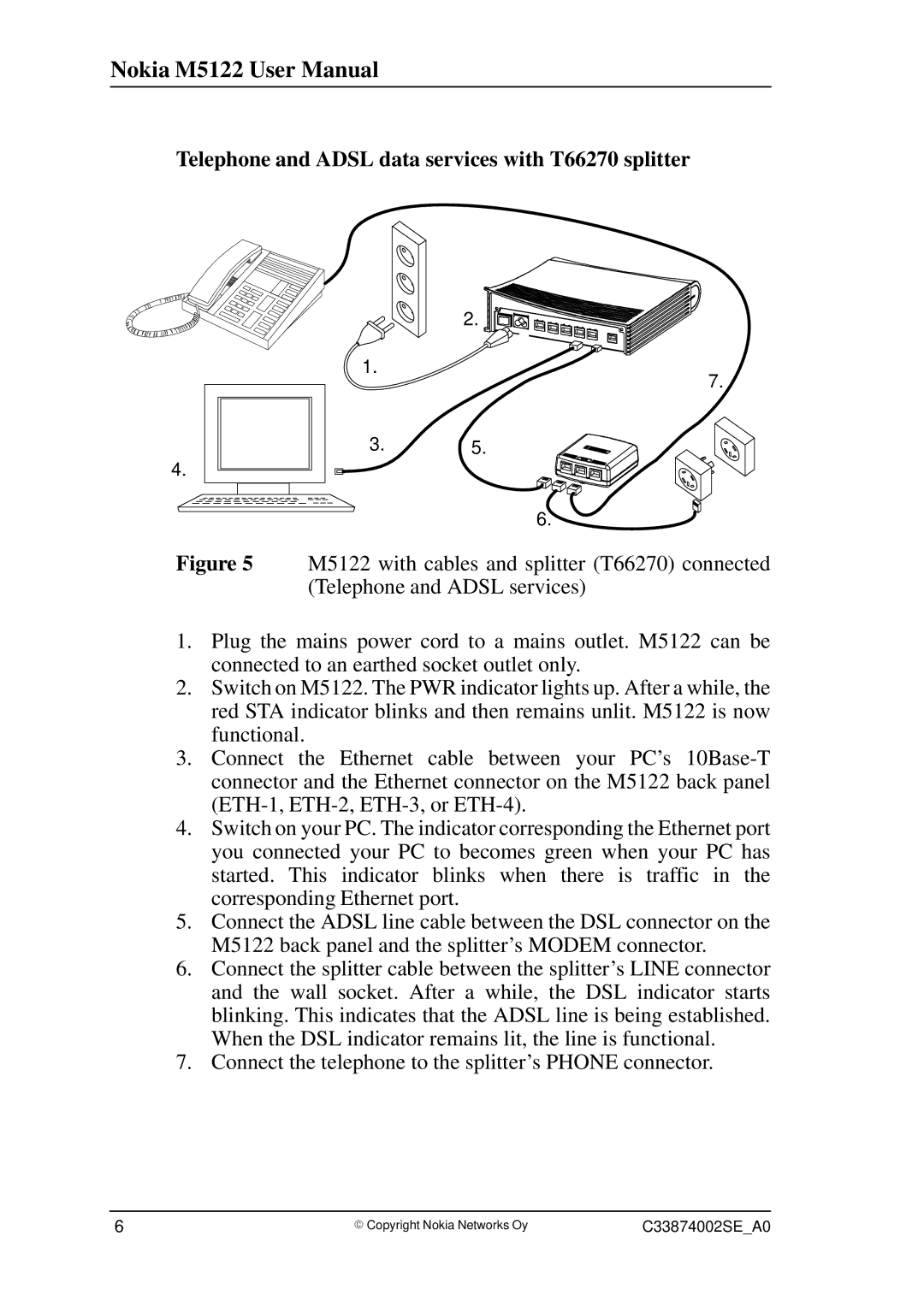T66250, M5122 specifications
Nokia, a name synonymous with mobile technology, has been instrumental in shaping the telecommunications landscape. Among its range of innovations, the Nokia M5122 and T66250 stand out. These devices showcase cutting-edge features designed to enhance user experience, connectivity, and versatility.The Nokia M5122 is characterized by its robust design and compact form factor. It boasts a vibrant display, ensuring clear visuals whether the user is browsing the web or streaming videos. One of its standout features is the integration of a powerful battery that promotes extended usage, keeping users connected throughout the day. The M5122 is equipped with advanced processing capabilities, allowing for seamless multitasking and smooth operation of applications.
On the connectivity front, the M5122 supports a wide range of network bands, including 4G LTE, facilitating fast data transfer speeds. This feature ensures that users can enjoy high-quality streaming and browsing experiences. Furthermore, the device emphasizes security with built-in biometric authentication technology, such as fingerprint recognition, providing users with peace of mind.
The T66250, on the other hand, focuses on delivering unparalleled multimedia experiences. It features an enhanced audio system that offers immersive sound quality, making it ideal for music lovers and gamers alike. The display on the T66250 is not just vibrant but also offers superior brightness and color accuracy, making it suitable for outdoor use.
In terms of performance, the T66250 houses a high-performance chipset designed for demanding applications, ensuring that users can run intensive games and software without lag. Additionally, the device is compatible with various smart technologies, flowing seamlessly with Internet of Things (IoT) devices, enhancing smart home experiences.
Both devices place a strong emphasis on camera technology, incorporating high-resolution sensors capable of capturing stunning images and videos. Features like optical image stabilization and advanced night mode ensure that users can take impressive shots regardless of lighting conditions.
Overall, the Nokia M5122 and T66250 exemplify the company's commitment to innovation, offering cutting-edge features, superior technology, and exceptional user experiences. These devices cater to diverse needs, making them suitable for both everyday use and specialized applications. With their focus on connectivity, performance, and multimedia capabilities, they are poised to keep Nokia relevant in the ever-evolving mobile landscape.

